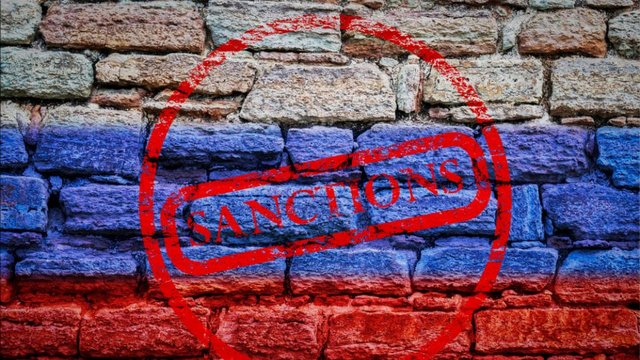Intl sanctions still have not affected majority of pro-Russian propagandists working in Ukraine's temporarily occupied territories – study

International sanctions still have not affected the majority of media workers associated with the promotion of pro-Russian propaganda in the temporarily occupied territories of Ukraine, analysts stated as part of the study "Media Landscape in the temporarily occupied territories of Ukraine" presented on Wednesday in Kyiv.
"The findings of the study show that the majority of persons associated with the promotion of [Russian] propaganda on the temporarily occupied territories of Ukraine were not subject to international sanctions. This means that these people can easily move abroad, including the EU, if for example, they have visas. And this is actually very sad, so the key goal of our work was to make them visible," analyst at the British Center for Information Resilience Yulia Parkhomenko said.
Thus, according to Deputy Secretary of the National Security and Defense Council Andriy Kononenko, the study identified more than 400 different entities, including individuals and legal entities, involved in Russia's destructive information activities in the temporarily occupied territories of Ukraine.
As he said, "the study of their activities will provide important assistance to law enforcement agencies of Ukraine. This includes criminal prosecution, these are sanctions that should be imposed. And the second very important aspect is informing the Ukrainian society about who, how and by what methods is trying to influence the consciousness of Ukrainians, on the situation in our state, which is already not simple."
According to Director of the Media Detector public organization Halyna Petrenko, "such documentation of collaborators in the information sphere is necessary so that these people cannot then calmly return to journalism."
The organizers said the study contains an analysis of the situation in the media sector in Ukraine's temporarily occupied territories since 2014, in particular, a comparison of digital and news agencies in the temporarily occupied territories – ministries in occupied Kherson, Zaporizhia, Luhansk, Donetsk and Crimea and their relations with each other and with Russia; a review of the media empire of Yevheny Prigozhin and Telegram channels associated with the Wagner group, an assessment of the influence of this media empire on the temporarily occupied territories; a review of key pro-Russian online publications and local Telegram channels, as well as an analysis of the connections between them.
The corresponding analysis was carried out by the Media Detector Research Center together with analysts from the British Center for Information Resilience with the support of the Partnership for a Strong Ukraine Foundation, funded by the governments of Great Britain, Estonia, Canada, the Netherlands, the United States of America, Finland, Switzerland and Sweden.
The research findings are based on open data, in particular Russian and pro-Russian media and online resources on the temporarily occupied territories with a focus on telegram channels. The methodology uses open source intelligence and a range of analytical tools, including collecting domain names from the Neo4j database, identifying 50 key domains using data provider Open Measures, and analyzing incoming and referring domains using Ahrefs.
The full text of the study can be found at: https://detector.media/doc/images/news/archive/2021/227543/ua-media-mapping-2.pdf









